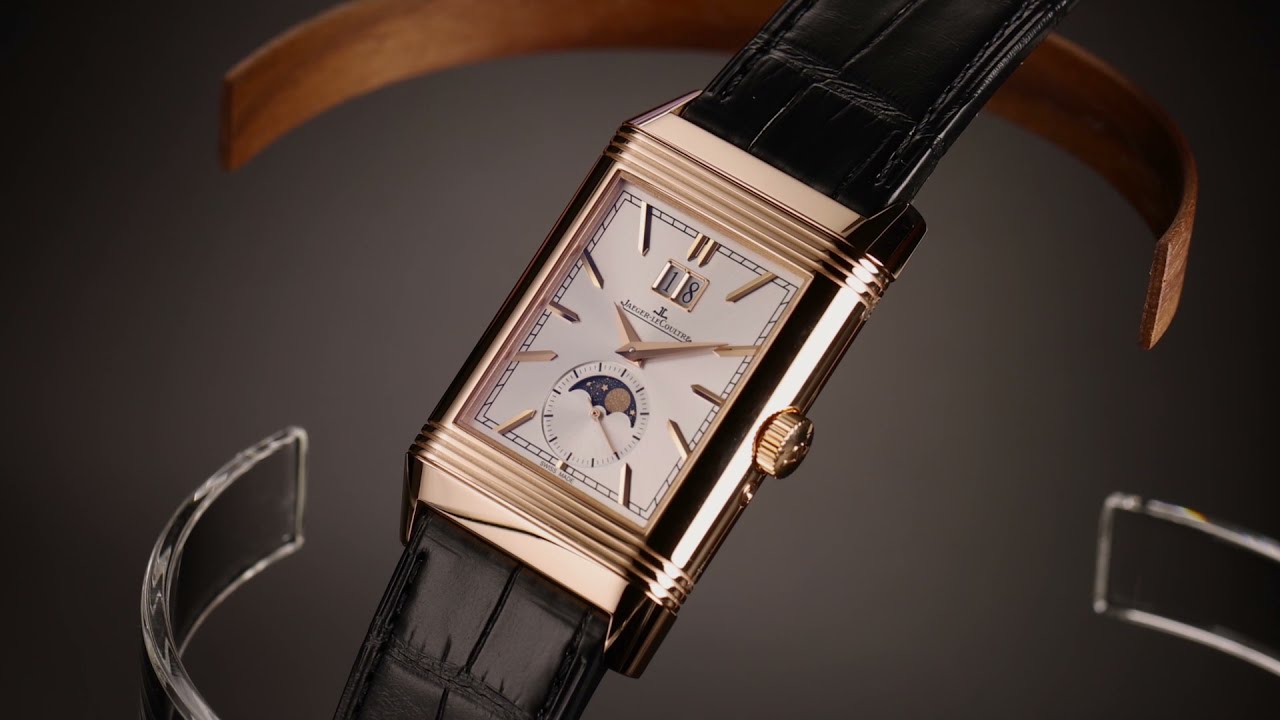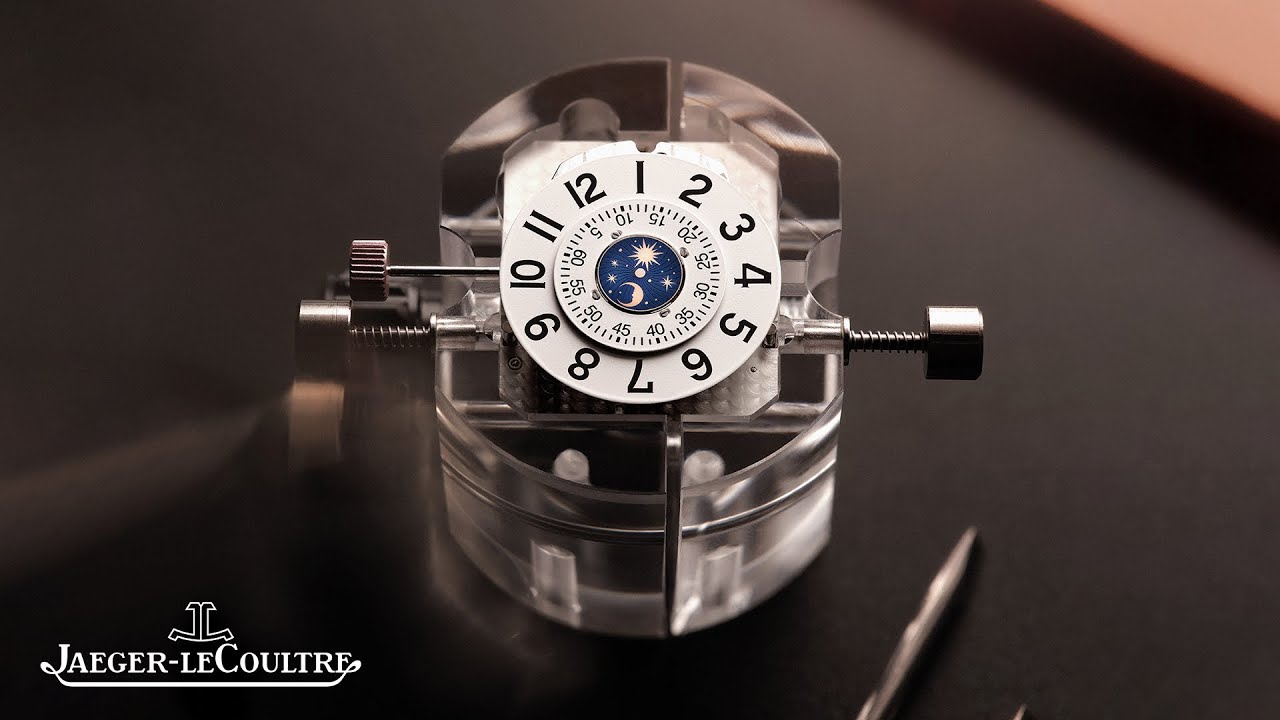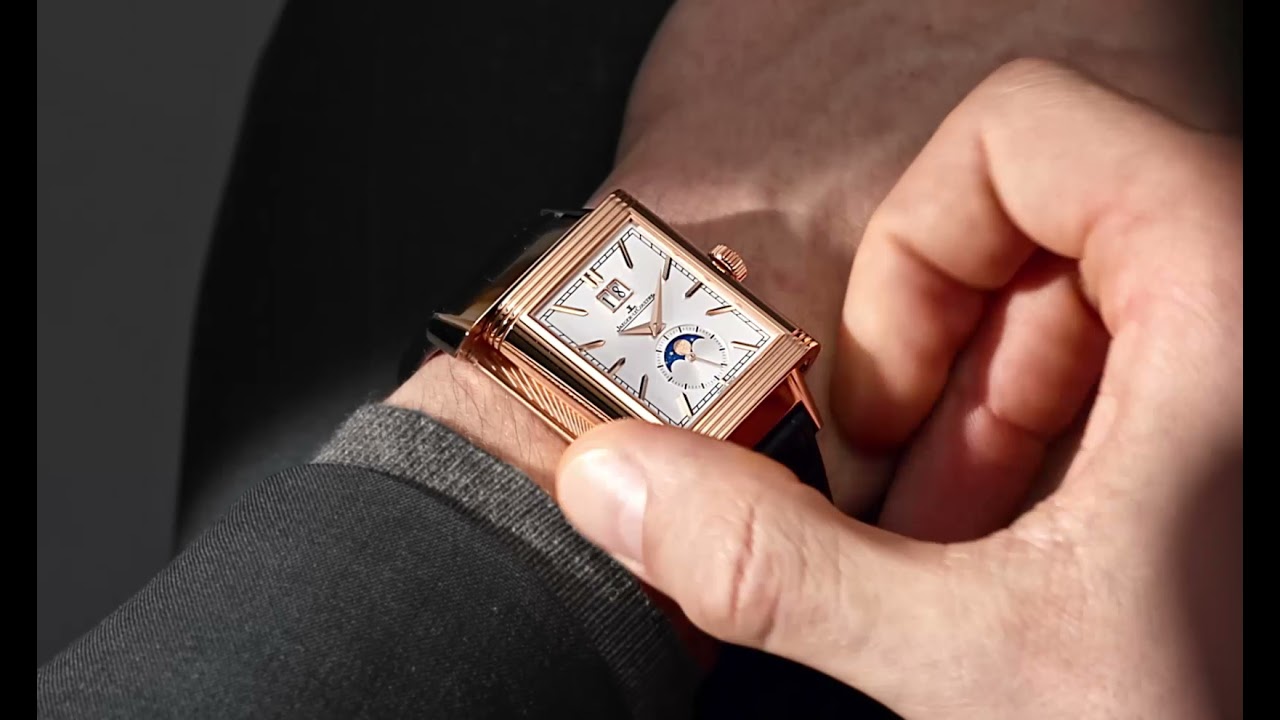
In 2021, nine decades after the Reverso was born, Jaeger-LeCoultre presents the latest episode in this story: the Reverso Tribute Nonantième, which gives a completely new visual expression to an alliance of several classical complications.
Ninety years ago, Jaeger-LeCoultre created the Reverso, an ingenious solution for polo players who wished to protect the glass of their watches while playing matches. With its swivelling case and distinctive Art Deco lines, it was to become a classic of 20th-century design. The Maison soon began to introduce new aesthetic variations of the Reverso but, for the first 60 years of its life, no mechanical complications were introduced; the Reverso remained a simple, time-only watch.

In 1991, 60 years after the Reverso’s creation, Jaeger-LeCoultre presented the Reverso Soixantième. With power reserve and date displays, it was the first Reverso with complications and the first with a sapphire crystal caseback, providing a window onto the mechanical treasure within. Although the Reverso case and its shaped movement had not initially been designed for complications, the Soixantième revealed its full potential, unleashing a sequence of pieces that gave new visual expression to the great watchmaking complications.

In 2021, nine decades after the Reverso was born, Jaeger-LeCoultre presents the latest episode in this story: the Reverso Tribute Nonantième, which gives a completely new visual expression to an alliance of several classical complications.

Reverso Writes a New Chapter in the Story of Complications
The launch of the Soixantième in 1991 had coincided with the rebirth of complicated watchmaking that followed the quartz crisis. Jaeger-LeCoultre’s long and distinguished history as a creator of high complications provided its engineers and designers with an exceptionally rich archive from which to learn, and develop new calibres. Nevertheless, the Manufacture’s goal of creating six new Reverso models within the decade, each incorporating one of the great classical complications, was very ambitious – not least, given the particular challenges posed by rectangular movements, which dictate a different architecture from that of round movements.

The Soixantième was followed in 1993 by the Reverso Tourbillon – the Manufacture’s first wristwatch tourbillon. In 1994, Jaeger-LeCoultre released the Reverso Répétition Minutes, the first time the Maison had miniaturised a minute repeater for a wristwatch, and the world’s first rectangular minute repeater movement.
In 1996, La Grande Maison introduced the Reverso Chronographe Rétrograde, with an intricate display on the reverse side that solved the problem of how to arrange the chronograph counters within a rectangular frame. This was followed two years later by the Reverso Géographique and, coinciding with the Millennium, the Reverso Quantième Perpétuel.

In 2001, Jaeger-LeCoultre marked the completion of another decade in the Reverso story with the Septantième. Its movement, Calibre 879, offered an 8-day power reserve – almost unheard-of at the time. And now, nine decades after the Reverso was born, La Grande Maison introduces a new alliance of complications.
Jaeger-LeCoultre Reverso Tribute Nonantième Technical Specifications
Reference: Q711252J
Case material: Pink gold
Case dimensions: 49.4 x 29.9 mm
Thickness: 11.72 mm
Movement: Manually wound Jaeger-LeCoultre Calibre 826
Functions:
Front display: Hours, minutes, small seconds. Grande Date. Moon phases
Back display: Digital semi-jumping hour, minutes on a disc. Night-day indication
Power reserve: 42 hours
Water resistance: 30 metres
Strap: Black alligator
Jaeger-LeCoultre Reverso Tribute Nonantième Gallery















